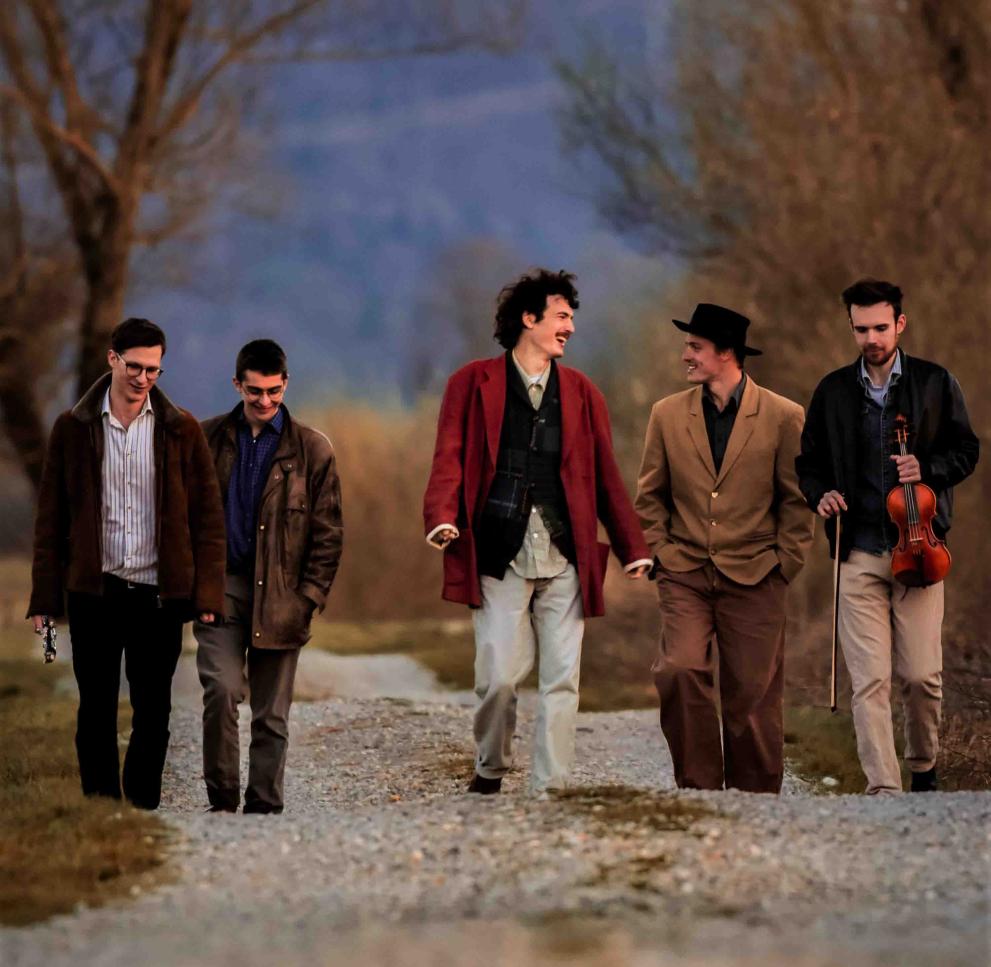Contact
The New European Bauhaus Festival brings a collaboration of Slovenian and Berlin-based ensembles Gugutke and the Gal Golob Trio, which will present traditional and folkloric inspired music to Brussels. Gugutke, a band formed with the intention of preserving traditional Balkan art forms, will present a pristine and untouched folkloric music, while the Gal Golob Trio will perform new original music and arrangements based on Slavic and Balkan beliefs and stories – a new folklore of sorts. Together they will create a mixture of the old and the new, showcasing (and questioning) the role of tradition in modern day life.
With a youthful approach to folkloric art, Gugutke are a quintet of Slovenian musicians that play folk melodies from Slovenia, the Balkans and Turkey in their own unique way, one which portrays a return to nature and folklore. Nejc Poljanec formed the quintet with the aim of preserving and celebrating traditional music that is gradually disappearing in the modern world, much like the endangered Turkish dove, after which the ensemble is named. Members of the group are passionate ornithologists, and their deep connection to the world of birds serves as a unique and meaningful undercurrent in their music and mission. They remain true to their roots, offering a return to the natural sound of folklore. Their performances transport listeners to simpler times, allowing the stories and melodies of the past to reveal their timeless beauty.
The Gal Golob Trio is a group of musicians from Berlin, whose repertoire consists of the original music of cellist and double bassist Gal Golob, which combines elements of Balkan folk music and modern improvisational techniques. The compositions create a space between simple folk melodies, contrapuntal play between saxophone and cello, sometimes clearly rhythmic and other times freely floating drums and meditative sequences. An interesting combination of instruments and the long cooperation of the band members create the personal and unique sound of this trio.
The different approaches of the two groups, while seemingly contradictory to one another, both show a strong belief in the power of tradition and national culture on each individual person and together manage to create a truly unique experience for the listener.

